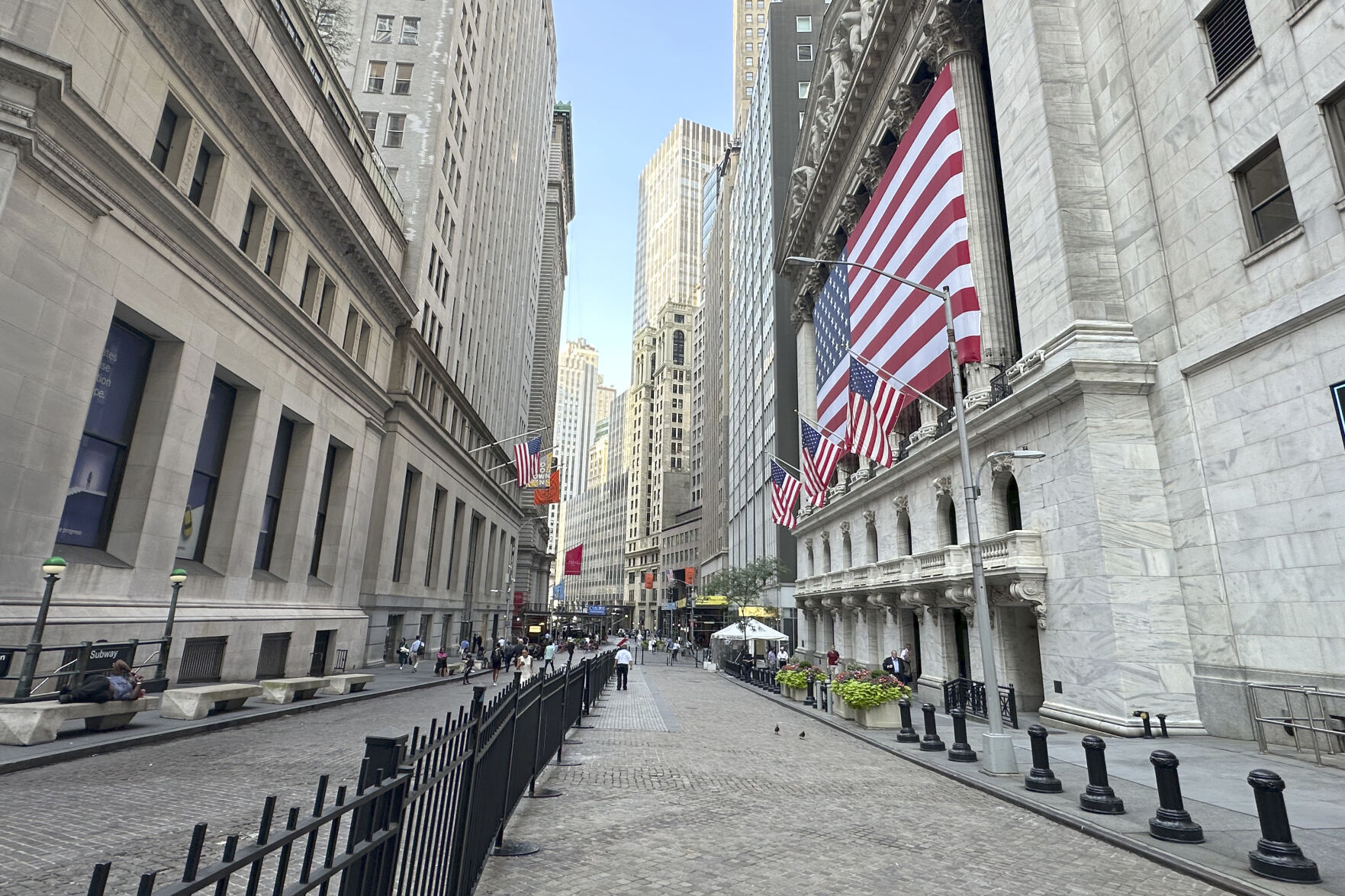NEW YORK (AP) — Wall Street is relatively quiet even as businesses around the world scramble to contain the effects of a disruptive technology outage. The S&P 500 slipped 0.1% early Friday, a day after a wipeout dragged much of the market lower. The Dow Jones Industrial Average was down 0.5%, and the Nasdaq composite was off 0.1%. The relatively calm trading came as a major outage disrupted flights, banks and even doctors’ appointments around the world. Cybersecurity firm CrowdStrike said the issue believed to be behind the outage was not a security incident or cyberattack and that it had deployed a fix. CrowdStrike’s stock tumbled 14%.
THIS IS A BREAKING NEWS UPDATE. AP’s earlier story follows below.
Wall Street was mixed in premarket Friday after a widespread technology outage disrupted travel and other services, but not trading.
Futures for the S&P 500 were up early but retreated and were flat before the bell. Futures for the Dow Jones Industrial Average fell 0.3% and Nasdaq futures inched up less than 0.1% after two straight days of significant losses as tech stocks tumbled.
“NYSE markets are fully operational and we expect a normal open this morning,” a spokesperson for the New York Stock Exchange said.
Long lines formed at airports in the U.S., Europe and Asia as airlines lost access to check-in and booking services as many travelers head for summer vacations. News outlets in Australia — where telecommunications were severely affected — were pushed off air for hours. Hospitals and doctor’s offices had problems with their appointment systems, while banks in South Africa and New Zealand reported outages to their payment system or websites and apps.
Cybersecurity firm CrowdStrike said Friday that the issue believed to be behind the outage was not a security incident or cyberattack. It said a fix was on the way. But hours after the problem was first detected, the disarray continued and escalated. CrowdStrike’s Nasdaq-traded shares were down 12.3% in premarket trading early Friday.
CrowdStrike competitor Palo Alto Networks gained 2.5%.
American Express fell 2.5%, even after the credit card and financial services company reported a big jump in second-quarter profit and raised its full-year earnings outlook.
Elsewhere, in Europe at midday Germany’s DAX lost 0.7% and the CAC 40 in Paris declined 0.6%. In London, the FTSE 100 shed 0.5%.
In Asian trading, benchmarks in Hong Kong and Taiwan dipped more than 2% as investors remained wary over China’s plans for reviving its slowing economy.
Chinese officials briefed reporters in Beijing on the outcome of a top-level meeting of the ruling Communist Party, providing some details of the sweeping blueprint it endorsed for making China a leader in technology, building its financial markets and raising living standards.
Their explanations remained relatively vague, though more details are expected in the weeks to come. Hong Kong’s Hang Seng lost 2% to 17,417.68, while the Shanghai Composite index reversed early losses to gain 0.2%, closing at 2,982.31.
In Tokyo, the Nikkei 225 lost 0.2% to 40,063.79, while South Korea’s Kospi shed 1% to 2,795.46. Australia’s S&P/ASX 200 fell 0.8% to 7,971.60.
In Bangkok, the SET index lost 0.6%.
Taiwan’s Taiex fell 2.3%, as computer chip-maker Taiwan Semiconductor Manufacturing Co.’s shares sank 3.5%, extending losses triggered by a report that Washington might double down on restrictions on sales to China of semiconductors and equipment used to make and test them.
TSMC’s U.S.-traded shares rose 0.4% on Thursday after the industry giant reported stronger profit for the latest quarter than analysts expected. It bounced back from its loss of 8% the prior day, but only after swerving between gains and losses.
The rout in the tech sector this week has dragged markets in the U.S. and Asia lower after a long spell of strong gains.
On Thursday, the S&P 500 dropped 0.8% and the Dow dropped 1.3%. The Nasdaq sank 0.7%.
As they did the day before when the Nasdaq tumbled to its worst loss since 2022, several Big Tech stocks led the market lower. Drops of 2% for Apple, 2.2% for Amazon and 0.7% for Microsoft were three of the heaviest weights on the S&P 500.
In other dealings early Friday, U.S. benchmark crude oil lost 23 cents to $81.07 per barrel in electronic trading on the New York Mercantile Exchange.
Brent crude, the international standard, gave up 9 cents to $85.02 per barrel.
The U.S. dollar rose to 157.59 Japanese yen from 157.37 yen. The euro fell to $1.0889 from $1.0897.


